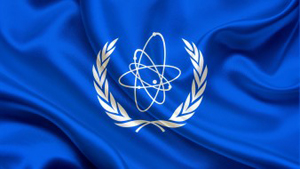Ru
|
Eng
IAEA: Belarus’ national nuclear program is open, transparent
23.06.2014

Belarus works openly and transparently as regards its national nuclear program, Deputy Director General of the International Atomic Energy Agency (IAEA) Alexander Bychkov said during an online press conference hosted by BelTA.
When asked on how to dispel the unfounded fears of people in relation to peaceful nuclear energy, Alexander Bychkov stressed: "The recipe is one: openness, transparency and easy access to information. Here I want to thank colleagues from Belarus. Together with invited experts from Belarus IAEA did a number of studies for Belarus to assess the national nuclear program: energy planning, study of the sustainability of the nuclear power system for a longer period, the analysis of the infrastructure for the construction of the first nuclear power plant. We gave a number of recommendations. All of this information is open to the public, NGOs and politicians! All data are available on the Internet, and this is very important.”
According to Alexander Bychkov, explanatory work with the younger generation, people from different segments of the society is needed in any country which is starting on its first nuclear power plant project. "All of this must be part of government policy. By the way, the decision to open an information center in Minsk was a very important step. I think it will help ease some biases and fears of people,” he added.
The atomic energy information center in Minsk will be set up at the National Art Center for Students. A corresponding memorandum was signed by Belarusian Education Minister Sergei Maskevich and head of Rosatom Sergei Kiriyenko during the 6th Atomexpo 2014 expo in Moscow on 9 June. The information center will open before the end of 2014.
The atomic energy information centers are multipurpose communications platforms whose purpose is to inform the public about peaceful atomic energy. Centers operate under the auspices of Rosatom in the capitals of the regions where nuclear facilities are built or operated. Each information center is a modern multimedia theater combining panoramic 3D-projection, computer graphics and animation, stereo sound, interactive consoles and personal monitors.
There are 16 centers in Russia. They have already hosted more than 280,000 visitors. There are also similar centers in Hanoi (Vietnam) and Mersin (Turkey).
When asked on how to dispel the unfounded fears of people in relation to peaceful nuclear energy, Alexander Bychkov stressed: "The recipe is one: openness, transparency and easy access to information. Here I want to thank colleagues from Belarus. Together with invited experts from Belarus IAEA did a number of studies for Belarus to assess the national nuclear program: energy planning, study of the sustainability of the nuclear power system for a longer period, the analysis of the infrastructure for the construction of the first nuclear power plant. We gave a number of recommendations. All of this information is open to the public, NGOs and politicians! All data are available on the Internet, and this is very important.”
According to Alexander Bychkov, explanatory work with the younger generation, people from different segments of the society is needed in any country which is starting on its first nuclear power plant project. "All of this must be part of government policy. By the way, the decision to open an information center in Minsk was a very important step. I think it will help ease some biases and fears of people,” he added.
The atomic energy information center in Minsk will be set up at the National Art Center for Students. A corresponding memorandum was signed by Belarusian Education Minister Sergei Maskevich and head of Rosatom Sergei Kiriyenko during the 6th Atomexpo 2014 expo in Moscow on 9 June. The information center will open before the end of 2014.
The atomic energy information centers are multipurpose communications platforms whose purpose is to inform the public about peaceful atomic energy. Centers operate under the auspices of Rosatom in the capitals of the regions where nuclear facilities are built or operated. Each information center is a modern multimedia theater combining panoramic 3D-projection, computer graphics and animation, stereo sound, interactive consoles and personal monitors.
There are 16 centers in Russia. They have already hosted more than 280,000 visitors. There are also similar centers in Hanoi (Vietnam) and Mersin (Turkey).
NEWSWIRE
17.07.2024
02.07.2024
27.06.2024
21.06.2024
19.06.2024
06.06.2024
06.06.2024
06.06.2024
06.06.2024
06.06.2024













